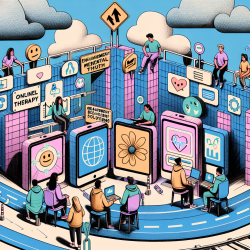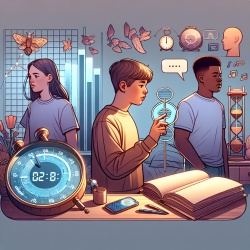Amyotrophic Lateral Sclerosis (ALS), also known as Motor Neuron Disease (MND), presents significant communication challenges for individuals as the disease progresses. Effective communication is a cornerstone of psycho-social and physical adaptation, yet, as ALS/MND advances, it becomes increasingly difficult. Drawing on the research presented in "Communication Changes and Challenges in ALS/MND" by Susan Carroll-Thomas, this blog aims to provide practitioners with insights and strategies to improve their skills in supporting ALS/MND patients.
The loss of physical access to communication tools and an altered communication style are among the primary issues faced by ALS/MND patients. These changes can lead to a reduction in spontaneity and control over communication, fundamentally altering personal relationships and reducing the quality of life. Recognizing and addressing these challenges early can significantly impact the effectiveness of communication aids and strategies provided to patients.
Here are several key strategies for practitioners:
- Early Prediction and Preparation: Anticipate changes in communication abilities and prepare both the patient and their families for these changes. Early intervention can help in adapting to new forms of communication before critical needs arise.
- Technical Solutions: Utilize high-tech and light-tech options to find a balance that suits the patient's current abilities. Acceleration techniques, user-friendly interfaces, and voice synthesizers can aid in maintaining a level of spontaneity in communication.
- Psycho-social Solutions: Beyond technical aids, the emotional, cognitive, and spiritual readiness of the patient to use these tools is crucial. Support patients in adjusting their priorities and adopting new rules for conversational control and language pragmatics.
- Training and Support: Provide comprehensive training for patients and their families on the use of communication aids. Continuous support and adaptation to the patient's changing needs are vital for the success of any communication strategy.
- Energy Conservation: Since fatigue can significantly impact a patient's ability to communicate, strategies for conserving energy while communicating can be beneficial. This might include teaching patients and families about efficient communication techniques.
Ultimately, the goal is to ensure that ALS/MND patients can continue to communicate effectively, thereby preserving their identity, relationships, and quality of life for as long as possible. Practitioners play a critical role in this process by providing the necessary tools, strategies, and support tailored to each patient's unique needs.
For a deeper understanding of the communication challenges faced by ALS/MND patients and more detailed strategies for addressing these issues, Communication Changes and Challenges in ALS/MND.










